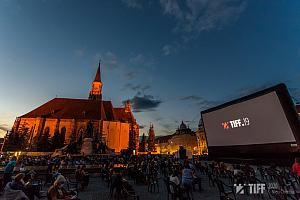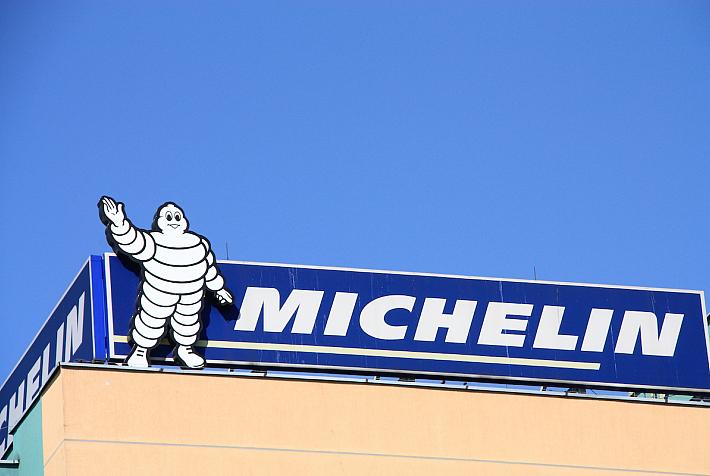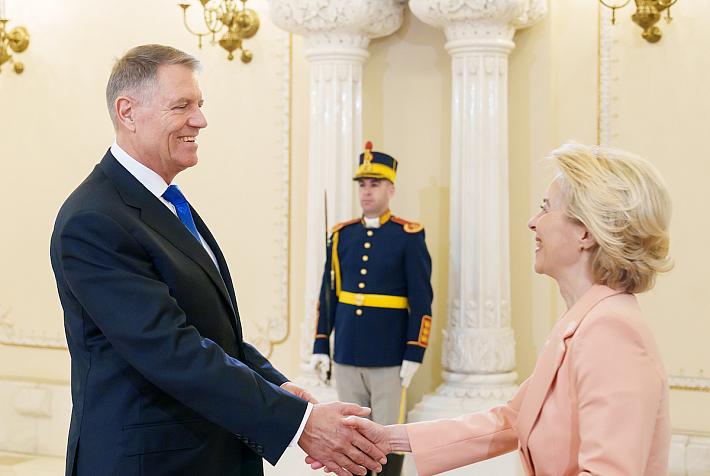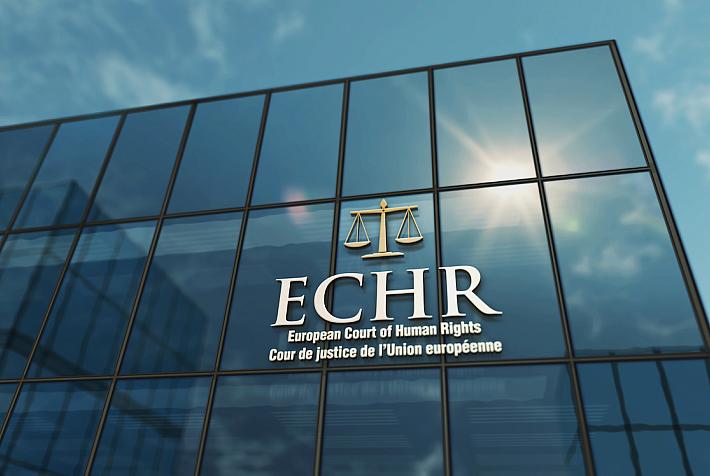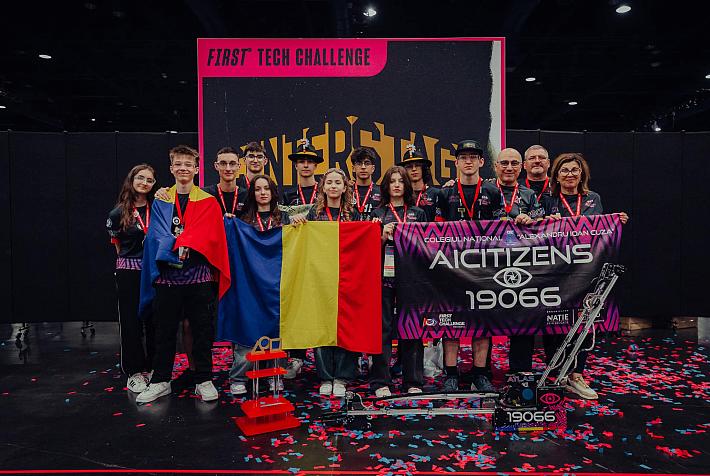Romanian film review and interview – Our Modern Tower of Babel: Please Hold the Line
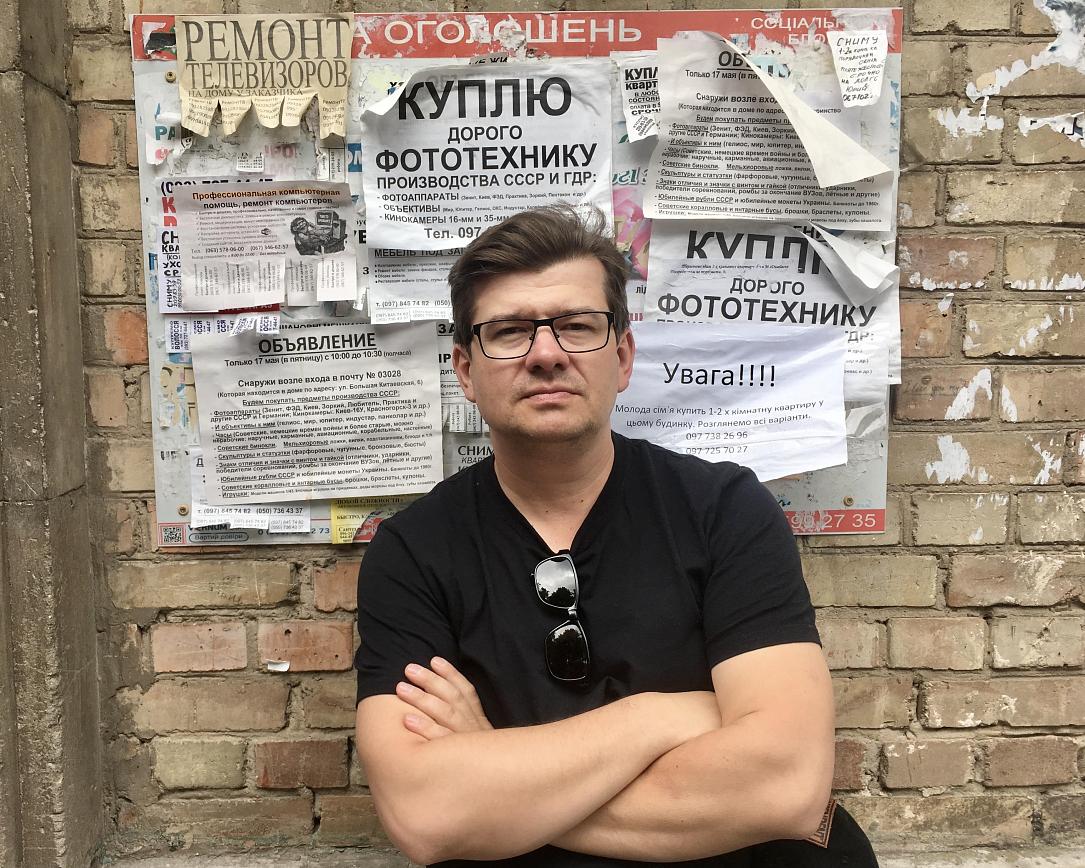
Pavel Cuzuioc’s Asteptati raspunsul operatorului / Please Hold the Line was one of the finest entries of this year’s TIFF selection and I am delighted to see it continuing its festival rounds, first in Sibiu for Astra Film Festival, where it just snatched the Jury's Special Mention in the Romanian Competition (the festival added an online edition between 16 and 25 October), and then in Moldova, in Cahul and Chișinău, for MOLDOX (9-13/17-19 October). A theatrical release will hopefully follow as soon as the times allow it. I was happy to talk to the director about his film, you can read the interview below after the short review.
Please Hold the Line has a deceptively simple premise in following cable technicians, fixing anything from phone to TV connections, in four countries: Moldova, Bulgaria, Ukraine, and Romania. The camera shows their daily routine in calm, perfectly composed images, cutting between the various countries in the course of a workday, traveling through villages, smaller towns, or modest city neighborhoods.
There is a droll, gentle humor pervading the entire film, as the (mostly) laconic men go about their day and stumble into what must be business as usual for them but very funny for the audience: putting the cables up in the most unlikely of places, battling jungle-like vegetation on electricity poles, trying to explain remote controls to older ladies whose understanding of the “Input” button is hilariously wrong, often mixing things up themselves (the Bulgarian team is particularly prone to that), while sometimes a hyperactive puppy steals the entire show. Their chats with the clients range from amusing (said ladies above, a philosophizing priest) to wondrous (an anarchist artist in Ukraine) to the heartbreaking (a man who lost his son to drugs). The predominant lightness is constantly undercut by talks or news of the many everyday tragedies afflicting these communities, like domestic violence, murder, poverty, or racism.
You’d be forgiven for thinking this is all set a few decades ago or not knowing at some points in which country you are because what these regions all share is the use of modern gadgets in a daily routine that hasn’t changed so much since 1989 (spotting the small differences here is one of the film’s many joys). If you grew up in Eastern Europe, you’d be even more forgiven for giving in to this feeling of the nostalgically familiar (or the nostalgia of a rotary-dial phone, for that matter).
Despite its episodic character, the film always allows its protagonists to share something intimate, especially in Ukraine and Moldova, where they are granted more of a personal story. At the end, it is the Moldovan technician who delivers a wonderful speech on the state of the world which also captures the essence of this insightful, affecting take on the need for human connection.
Director Pavel Cuzuioc has generously answered my questions on his documentary and a filmmaker's thoughts on cinema in a crisis-stricken world.
Dear Pavel, I was very moved by your film, also because you chose a profession that has become somehow less visible. When I was little I remember there were these men everywhere, we all knew someone who could fix a cable or a TV set. Maybe now most of this has moved online. How easy or difficult was it to be able to join these workers on their tasks and enter people’s houses?
Yes, indeed, if you wanted to make a similar film in five years, it would be more difficult, because you are right, most of this kind of work is done online now, there is more maintenance and less hardware. Analog telephony still exists, but to a lesser degree, and TV sets nowadays cost more than repairing them. These technicians in the films guide you through the societies in which they work. PLEASE HOLD THE LINE is not just a film about technicians and these countries. I wanted to make a film about us, about communication, and all this chaos we call life.
I was able to build a relationship of trust with the technicians and we were a team, they tried to help me and engage the clients in a discussion. It was sometimes complicated to enter their houses, I needed a small pitch for every client (laughs). Some did not want to be filmed while others literally “begged” to pour out their souls for the camera. We met many lonely people and they invited us to eat with them when we arrived. We were also lucky because there were also days we couldn’t get into any house. For instance, we made it to Ukraine for the first time before the presidential elections in 2019 and there was a strange atmosphere, a single gentleman agreed to welcome us, so I was desperate. We came back after the elections though, and people were relieved by Zelensky’s win, it was a different world.
The pitch for the companies was more elaborate and official. In Moldova, it was easy because it was home. In Bulgaria, we started with one company but it didn’t work, so we got to a second one. In Romania, we worked with TVSat in Buzău, they were very open, just like in Ukraine, where the state company was very cooperative.
The older people in the film share a certain kind of nostalgia (the films on TV were better, the old mobile phones as well etc.), maybe also due to a mad transition period; generally I had the feeling the film might be placed in a past decade, and not in contemporary times.
As far as nostalgia goes and saying it used to be better a while ago, I think it was always better in the past. It is also a matter of age, “it was better when we were younger“. It’s not that cars were better back then, it was us being able to drive them better. The past is also nostalgic, unless there were traumatic events, because it implies a so-called safety that the future does not have. If you relive the past, you think you might escape the anxiety caused by the uncertainty of the future.
And you know, when you‘re not shooting in the center of big cities but ten kilometers away, it looks very different. It’s this discrepancy of having new technology but things are still like 30 years ago.
While watching the film, I assumed this timeless feeling might be the reason you chose these countries, because they seem so similar this way, and in many more respects.
Yes, they are very similar because the also share a geo-political development, in terms of history. I chose to shoot there because I am connected to every country in a certain way. I was born in Bessarabia, I studied and worked in Romania for eight years. Bulgaria was the first country outside of the USSR that I visited in 1988 (like Romania, for that matter), and in Ukraine I used to go to the seaside on summer camps or visiting relatives, in Odessa and Cetatea Albă. I wanted to return to these places and relive emotions from 20 and 30 years ago, to relive an unpredictable past. Joking!
In the film’s press kit you refer to means of communication that should ideally unite people, but misunderstandings and conflicts are present just as always, despite the modern technology. What impressed me in PLEASE HOLD THE LINE is how clearly this point comes across, not only at the end, when the technician in Moldova talks about our current society, but also implicitly, when the radio and TV keep broadcasting terrible news, from the Caracal case last year to features on extreme poverty, and how protagonists mention the domestic violence or racism surrounding them. How did you plan to work with all these levels, and how much just happened by coincidence during the shoot?
The idea was for the audience to find themselves in all these settings and news that overlap. Editing can help a lot, and I try to edit throughout the entire shoot. I capture the so-called reality and edit it like fiction without changing its essence. With films, I try to tell a story that takes or could take place. I also started from the idea that we haven’t misheard something, or didn’t get parts of it, but that we all interpret what we hear based on who we are as people. And then I thought I’d focus on this madness, with everyone living in their own world, but still sharing a social reign and its technologies, and see what awaits me on this voyage in the so-called modern Tower of Babel. With a movie, everyone starts out on a voyage, both its creator and the audience, but from different starting points.
I don’t know if the question can be answered briefly, but I was wondering about the current state of cinema in Moldova. You live and work in Austria and keep returning to Moldova for your films, and other young directors, like Ana-Felicia Scutelnicu, also work abroad. Are there many filmmakers who have studied in other countries and return to make their films here? I was happy to see several films at TIFF this year by Moldovan filmmakers, both set there (Dragoș Turea’s The Soviet Garden), or in Romania (Dorian Boguță’s Legacy).
You know, I think TIFF has always been happy to host Moldovan filmmakers. There have not been many movies because the CNC, the National Film Centre, was founded only four years ago, the draft bill had been on a shelf for a very long time. There is a film school in Chișinău, (Faculty of Theatre, Choreography and Multimedia as part of the Academy of Music, Theatre and Fine Arts, ed. note), but if the school didn't have resources (and still doesn’t), how can you make films, and if the teachers haven’t shot in so many years (starting with the 1990s), what could they teach? Only theoretical stuff and stories from their times of glory 30 years ago?
Many Moldovan films (also in Soviet times) had a dose of pathos most of the time, an over-the-top fatalistic lament. But in general you can’t really speak of a Moldovan cinema, only of Moldovan authors. But this is also where my problem with this comes in, I don’t want to identify with any type of cinema. A film is the work of an author, with no nationality, it is a universal story told by a director. This whole talk of New Waves in this country or the other are waves in a bathtub, not in an ocean. We should not have illusions about that.
When you talk of a ‘type’, I assume you refer to a certain nationality, and not to a style?
Yes, I mean countries, not styles. There are styles and manners everywhere and you pick one because you like it and it helps you grow. Creating something new is the next step and the most important one. Of course, you must say that a film is Austrian, Romanian, or Moldovan, because the money comes from there, and it is financed by that country’s tax payers. This is the rule now.
Most films now are co-productions, especially in Europe, so from this point of view, at least, it all seems more inclusive.
That’s true, and then you realise the story has to work everywhere.
How have you been navigating these pandemic times? How are they for someone who is involved in a process of production, do you have any projects that have been stopped, or postponed? I have read interviews with artists musing on the times, and some see beautiful chances as well (the wonderful Apichatpong Weerasethakul, for instance, has some lovely ideas about non-narrative, observational cinema becoming the norm). Do you also see some good things in all of this, or are they just troubling times for you?
I have a new project that I started last year and shot in Russia. I had a flight ticket for April-May to shoot our third part of the production there and I had to postpone it all. Before the pandemic, we had the luxury of dividing our time freely. Now I know I will hurry to shoot there as soon as it is possible and I would be much more persevering in the future, I would hurry. Maybe that would not be good, but what I’m trying to say is that if I will have a chance to shoot, I will grab it, and not wait for a second chance. For now, I am keeping in touch with the protagonists via Skype or email, but it’s not the same. However, the passing of time is not too important for the type of film I am making now, because it is about astrophysicists in a remote Caucasian village who research, analyse and interpret data. The main idea is I will not hesitate anymore, and time will not be a luxury anymore, at least for me. I care about this project, so for now I am waiting. But I suppose if I didn’t have it, I would look out of the window and look for a new subject. Anything can be a film subject, you just have to be involved with it.
There are also new questions: Will I be able to finish it, or should I wait, should I start a new project? But then again, what kind of project, because the pandemic does not allow you to work and move as you used to. Unfortunately, this work is dependent on a lot of movement, a lot of contacts. You cannot just retire to your studio and paint, like a painter.
This situation also makes one wonder about artists who would not continue their work because of a crisis, a war. Maybe this crisis now should last longer to “deform” us into something more innovative and special. What Weerasethakul says is also beautiful, thoughts are always beautiful, even if not practical, but let’s see.
Yes, we are still at the beginning of all this.
Yes, yes. I’ve heard that the speed at which we are moving now, this spring and summer, is the speed of the 1970s. Even if we have all this technology, we still cannot advance faster because of the pandemic-imposed limits. And we are back at the idea of communication and the film’s topic: you have all these gadgets, and you can devour so much content, but what are they good for if you’re not mobile?
Gadgets seem to be of help in this period in terms of online content: many festivals took place online, or in a hybrid form, the Netflix subscriptions sky-rocketed, cinemas stream their selection online etc. How do you see the future of cinema in general, is there also a worry that people will go to a theatre or a festival less often, even without a pandemic?
I think there has been a general tendency to offer more online content. Yes, I do worry, because I wouldn’t want to make a film for a small screen. I wouldn’t want an audience to watch my film and have the option to press “pause”, or watch it in daylight, with bad sound, or a poor monitor. And then I wonder what these expensive formats are for, Dolby Atmos surround, 4K, enormous post-production budgets, when the films will be watched eventually on a tablet or a phone. This is not cinema. It’s a good thing we have access to this type of programming, for movies that are not challenging to watch, or for a series to air your mind. But auteur cinema needs a different approach. If everything was online, I would make movies for me, and not the audience. Maybe I am exaggerating, but a film needs a theatre with an audience as we need direct, personal contact.
No, no, it does not sound at all like an exaggeration, in a cinema we are forced to interact differently with a movie. Maybe it’s my naive optimism, but I think that people might choose to go out more after a period of not being allowed to do so.
In a theatre you are in an environment which has been imposed on you in a way, you are forced to think, to sit it out a bit, if you don’t like the beginning, you wait to see how the rest turns out, you cannot skip. What you could do is fall asleep. This is my own “guilty habit”. The tendency to go online was strong even before the pandemic, many big productions premiere on Netflix, for instance. On the other hand, there are also platforms hosting films you’d have to chase like mad as soon as they come out, or you’d be hard pressed to find even in a cinematheque, like a retrospective of Portuguese cinema of the 1970s.
But now, old forms have been brought back to life, like drive-ins. I attended one and I was happy to see a format that had been almost extinct. I really experienced a different type of cinema, for the first time. And it was a great thing. There will be a lot movies, a lot of writing about this time. It’s an interesting time, but I don’t like it.
It’s more interesting after it has passed.
Yes, more interesting afterwards, and I hope never to return (laughs).
Thank you so much for the interview!
By Ioana Moldovan, columnist, ioana.moldovan@romania-insider.com
(Photo: Pavel Cuzuioc. Photo credit: Valeria Sochyvets, from the director’s personal archive.)







